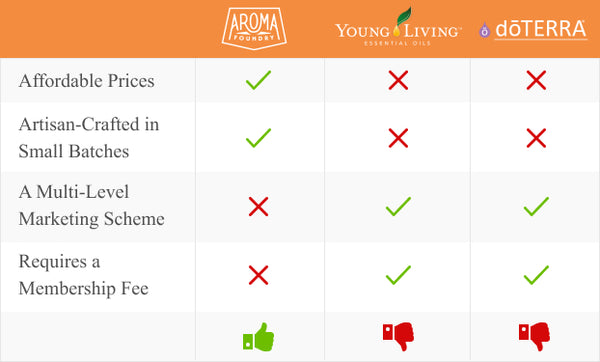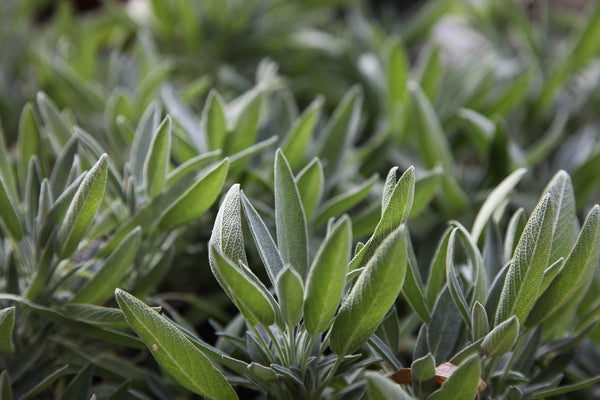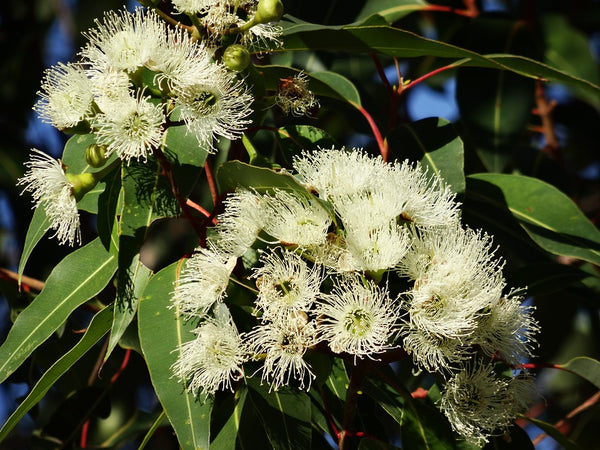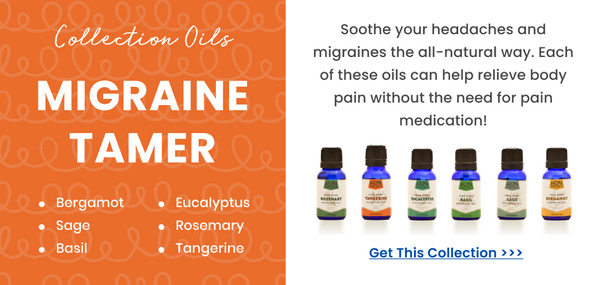
It seems that as we grow older, we get headaches more and more often. Maybe it’s just a natural consequence of growing up and having more and more responsibilities, but there is actually a whole range of things that can cause headaches.
Some people are genetically predisposed to getting headaches, while some headaches may be caused by muscles, nerves, and blood vessels around the skull and neck. However, there are also other issues that may cause headaches. Maybe you have a sinus infection, an ear infection, hypertension, the flu, or maybe you just have a bad hangover. Things like stress, certain foods, lifestyles, habits, and even skipping a meal or two can make your head throb as well.
It’s important to figure out the cause of your headaches so you can get to the root of the issue. Sometimes, headaches can go away after a short while. Other times, however, headaches can go on for too long and mess up your entire day.
You can take over-the-counter painkillers if you want relief from headaches. However, if you’re looking for a more natural solution, you can check out Aroma Foundry’s Migraine Tamer Essential Oil Six-Pack. You’ll be able to get six essential oils that each has the ability to help you get rid of headaches and give you relief from pain. Have this special pack delivered straight to your house by clicking the image below.
We did a side-by-side comparison with two of the world's biggest essential oil brands.

Essential Oils for Headache Relief

Each of the essential oils you’ll find in our Six-Pack has properties and components that can help you deal with headaches and migraines. However, relieving headaches isn’t the only thing that these essential oils can help you with. They have a full complement of health benefits that can also handle a number of other afflictions. For more information, check out our posts on every essential oil we have.
You can also refer to the “How to Use the Oils” section further below to see how the oils in this Six-Pack can work together to give you the best headache relief!
1. Sage Essential Oil

Sage (Salvia officinalis) can be considered to be a common garden herb, but it is far from ordinary. Ancient Egyptians, Greeks, Romans, Native Americans held the herb in high regard because of its pain-relieving properties, among others. Sage was also used to treat coughs, regulate menstrual cycles, and more.
Sage essential oil, in turn, has been found to be quite versatile and useful in a number of ways. It is a good disinfectant, since it can help fight harmful bacteria and fungi that can cause skin conditions and other infections. Additionally, sage essential oil can help fight inflammation, relieve constipation, improve digestive health, and many more.
Physical pain is something that we all have had to deal with, some more regularly than others. This, of course, includes headaches. Sage essential oil can be helpful in dealing not only with headaches, but with other types of body pain as well.
If your headache is a symptom of respiratory infections or is caused by things like nasal congestion, sage essential oil can be a good choice. Because the oil is an expectorant, it can help reduce the buildup of phlegm and thus help lessen the pressure and pain caused by congestion.
Additionally, if you’re getting a tension headache, sage essential oil can also be a good choice. Sage has properties that can provide relief from pain caused by tense muscles in the neck and head, which are often caused by things like driving or sitting at a computer for long periods.
It’s important to remember to be careful in using sage essential oil. It’s safe to use in moderation, but can be harmful when it’s ingested in large amounts. Sage oil also stimulates the nervous system, and should thus be avoided by people with epilepsy. It should also be avoided by pregnant women.
Learn more about sage essential oil benefits.
2. Tangerine Essential Oil

Tangerines (Citrus reticulata) are a species of citrus fruit that tend to be on the sweeter side. They look a lot like oranges, but contain more vitamin A. Aside from vitamin A, however, tangerines can offer other compounds that can benefit you in a number of ways.
The catch, however, is that these compounds are found mostly in the peel of a tangerine.The flesh of the tangerine fruit itself is nutritious and delicious for sure, but compounds like linalool, alpha-pinene, terpineol, myrcene, sabinene, nerol, and more can be found in large amounts in the peel. Incidentally and fortunately, tangerine essential oil is derived from the peel of the fruit via cold press extraction.
Because of the presence of all these compounds, tangerine essential oil is versatile and can be beneficial in a number of ways. It’s considered to be effective in helping boost metabolism and improve digestion. It also promotes better blood circulation, gets rid of harmful microbes, and helps improve your mood.
Tangerine essential oil can also be helpful when you’re suffering from a headache or migraine caused by inflammation. Tangerine oil has anti-inflammatory properties that can help your respiratory, digestive, circulatory, excretory, and nervous systems. Thus, if your headache is caused by inflammation in the stylohyoid ligament, tangerine oil can be your best bet. You can also use the oil if you have inflammation in the sinuses (sinusitis), throat (pharyngitis), or ear (otitis).
It’s important to remember, however, that tangerine essential oil is a citrus oil. Citrus oils in general can cause photosensitivity, which is a skin irritation that can occur when you apply a certain essential oil on your skin then expose that area to sunlight. Thus, if you’re applying diluted tangerine oil onto your skin, it’s best to wait up to 12 hours before going out into the sun.
Learn more about tangerine essential oil benefits.
3. Rosemary Essential Oil
 The Ancient Greeks considered rosemary to be a magical plant that can improve memory. Photo by Manuela Böhm/Unsplash.com.
The Ancient Greeks considered rosemary to be a magical plant that can improve memory. Photo by Manuela Böhm/Unsplash.com.
Rosemary (Rosmarinus officinalis) has been known as an effective medicinal herb for thousands of years, so much so that it was once considered to be a sacred herb. It was known to be able to protect against diseases and, more prominently, improve memory. The herb was also found to be able to help in managing stress as well as relieving pain and respiratory issues.
Stress is a big factor in many headaches. This is why, when you’re working on an overdue report or trying to make sense of a complicated problem set from one of your classes, your head begins to throb and pain begins combing through your temples. Rosemary essential oil has been proven to lower the levels of a hormone called cortisol, which has been associated with stress.
Rosemary oil has been proven to be effective in relieving pain due to its analgesic properties, which can stop pain signals from making their way to the brain. This may be a good natural alternative to pain medication, to which the body can build tolerance. If you get headaches often, you may want to consider alternatives to over-the-counter painkillers. Thus, rosemary oil is a good choice.
Respiratory issues like colds, the flu, and sinusitis can also cause bad headaches. Fortunately, rosemary oil has also been proven to be able to fight sickness-causing microbes. By using rosemary oil, you may be able to speed up your recovery since it can get rid of the bacteria and viruses that caused your symptoms in the first place.
Before you use rosemary oil, however, remember to be careful with it. Do not apply pure rosemary oil directly onto your skin, as this may irritate your skin or cause dermatitis. Always dilute rosemary oil in carrier oil or other suitable ingredients to avoid these adverse reactions.
Learn more about rosemary essential oil benefits.
4. Eucalyptus Essential Oil
 Eucalyptus trees in the wild can live long lives that last about 250 years.
Eucalyptus trees in the wild can live long lives that last about 250 years.
Eucalyptus (Eucalyptus globulus) is perhaps best known as the favorite snack of koalas. However, these adorable marsupials aren’t the only ones who benefit from the eucalyptus tree. Humans have also been using eucalyptus for its medicinal properties for a long time. It is known for its ability to help relieve respiratory ailments, though it has been proven to have many other medicinal benefits as well.
Headaches can be rooted in pain spreading through the nerves. Luckily, eucalyptus essential oil can help target pain in those areas, thereby targeting the root of the problem itself. The oil can also help blood flow more freely through the veins, so it can circulate better in the muscles. This can be effective in helping ease pain localized in the muscles in the head.
Respiratory ailments also often lead to headaches. Clogged airways can make the head feel heavy, which can be uncomfortable. Eucalyptus oil is an effective expectorant, which means that it can help you expel mucus from your airways. This can ease pressure off your sinuses, which can then ease headaches. Eucalyptus oil can help relieve various respiratory ailments, thus allowing you to power through the day until you can finally take a break.
Of course, if your respiratory illness is particularly bad, you may have no other recourse than to take the day off to recover. In these cases, eucalyptus oil can also relieve stress and help you relax.
Even the simple act of inhaling the aroma of eucalyptus oil can already be effective in helping ease headaches. Do not apply undiluted eucalyptus oil to the skin, nor should you ingest it. Even small amounts can cause serious adverse reactions. To be safe, first apply diluted eucalyptus oil onto a small patch of skin on your leg or arm to see how you react to it.
Learn more about eucalyptus essential oil benefits.
5. Basil Essential Oil
 It was believed that basil plants grew in the same place where St. Constantine and St. Helena discovered the Holy Cross.
It was believed that basil plants grew in the same place where St. Constantine and St. Helena discovered the Holy Cross.
Basil (Ocimum basilicum) is an extremely popular herb in a lot of culinary traditions. However, it can do more than lend a fresh, distinctive flavor to food. It also has analgesic, anti-inflammatory, antimicrobial, and antioxidant properties that allow the herb to have a variety of health benefits. Among these benefits is the ability to help ease headaches and even target the causes of headaches themselves.
Basil essential oil has been proven to be able to help with getting rid of respiratory infections. When you contract the flu or the cold, a headache is usually part of the package. This is because these ailments usually come with the buildup of mucus and phlegm as the result of infection. However, mucus can clog airways and sinuses, which can lead to pain in the temples, above the eyes, or in other spots on the head. If you clear up the infection, you can clear up your airways. As a result, you can then clear up your headache.
It’s also possible that the root of your headache is in the muscles in your head. That kind of headache is also in the wheelhouse of basil oil, since the oil can function as a muscle relaxant. If you massage diluted basil oil on your temples or on any other affected areas on your head, you may be able to notice your headache start to clear up.
Before you apply basil oil onto skin on your face, however, first test out a drop or two on a patch of skin on your arm or leg. This is to ensure that you will not have any adverse reactions to the oil. The skin on your face can be quite sensitive, so it’s best to ensure that the oil you put on it will not make you have a bad reaction.
Learn more about basil essential oil benefits.
6. Bergamot Essential Oil
 Bergamot oranges are full of nutrients like potassium and vitamin A, B1, B2, and C.
Bergamot oranges are full of nutrients like potassium and vitamin A, B1, B2, and C.
Bergamot (Citrus bergamia) is an aromatic fruit that has built a reputation for having a variety of uses. It can be used in tea and even perfumes due to its fragrant smell. However, bergamot brings much more to the table than its fragrance. It also has various properties that have various medicinal functions.
Sometimes, the best way to get rid of a headache is to simply go home, get into bed, and try to sleep it off. However, if the source of your headache is stress and anxiety, you may find it difficult to relax and fall asleep. Luckily, bergamot essential oil has flavonoids that can also function as relaxants. These have the ability to reduce your stress and anxiety, allowing you to be able to rest and recover from your headache.
If you don’t have the luxury of sleeping your headache off, however, you may want to simply ease the pain in your temples. Bergamot oil has the ability to stimulate the production of certain hormones that can help reduce your sensitivity to pain. Thus, you have a better chance of withstanding your headache.
Alpha-pinene and limonene are important components of bergamot oil that can improve the circulation of blood. This can help ease headaches if those headaches are rooted in the muscles, since poor blood circulation can contribute to muscle pain.
However, you need to make sure that you use bergamot oil properly. Unlike other essential oils, bergamot oil should not be applied to the skin if you have sensitive skin and you’ll be going out into the sun in a short while. Bergamot oil can also lower your blood sugar, which can cause some health issues. Thus, it’s best to consult a medical professional first before using the oil.
Learn more about bergamot essential oil benefits.
Precautions
While pure essential oils are all-natural and organic, that doesn’t mean that they’ll always be safe and harmless. Like with any other thing in the world, essential oils should be used properly in order to obtain their full beneficial effects. Before you use essential oils, it’s best to read up on how to make your usage safe and effective.
Generally, you should not apply more than a few drops of undiluted essential oil onto your skin due to the risk of irritation and other side effects. You also should not apply essential oils to children, as essential oils can be too much for young, developing body systems to handle. Essential oils also aren’t a good idea for pregnant or breastfeeding women, since the oils can affect a developing fetus as well as a lactating woman’s breast milk supply. You should also ask your doctor which essential oils are compatible with your medications, and which you should avoid due to health conditions.
How to Use Essential Oils for Relieving Headaches

The oils in our Migraine Tamer Essential Oil Six-Pack don’t have to work individually. If you buy one of our six-packs you’re not just buying six of the same thing. You can also mix and match the different oils to enhance the effects of each one. For example, you can mix a couple of drops each of basil oil and eucalyptus oil to make a cooling, soothing vapor rub that can help you recover from colds.
The combinations below use only the oils in the Six-Pack, along with simple, easily available items that you’ll likely be able to find in your kitchen.
Massage Oil Blend for Soothing Sinuses
Clogged sinuses can induce some of the worst, most uncomfortable headaches. However, you can get relief from clogged sinuses with a massage. Look around your kitchen and check if you have something that can function as a carrier oil, like coconut oil or jojoba oil. With three of the oils in our Migraine Tamer Essential Oil Six-Pack, you can come up with a massage oil blend that can help free up your sinuses and soothe your headache.
Here are the things you’ll need:
- 8 drops of eucalyptus essential oil
- 5 drops of sage essential oil
- 5 drops of rosemary essential oil
- 60ml of a carrier oil
Combine all the oils in a glass euro dropper bottle. It should be a dark-colored bottle that can protect the organic contents inside. You can find one by checking out Infinity Jars, whose glass containers are all made of ultraviolet glass.
Shake the bottle to thoroughly mix the contents together. Use about a tablespoon of the mixture for every massage session.
Comforting Compress
If you have about four to five hours to spare, a warm compress may be just what you need to soothe your headache. Of course, you can always just wet a small towel with warm water and settle for that, but you can also use the oils in our Migraine Tamer Essential Oil Six-Pack to improve your recovery.
Here are the things you’ll need:
- 1 drop of tangerine essential oil
- 1 drop of basil essential oil
- 500 ml warm water
Take a glass bowl and pour the water into it. Add the tangerine oil and the basil oil and make sure that all three ingredients have mixed together well. Then, take a small towel and soak it into the bowl. Squeeze to remove excess water, but not too much that the towel is more damp than wet.
Lie down in your bed or someplace where you’re comfortable. Gently press the towel onto your forehead and temples and keep it there for about 4 hours. You can do this as many times as you want until your headache has completely gone away.
Tranquil Aromatherapy Blend
Aromatherapy is one way to use the essential oils in relieving your headache. If you have a diffuser, aromatherapy should be simple. Just add the oils into the diffuser and let them work their magic. This way, you can keep working or studying while also recovering from your headache. Of course, if you feel like you’ll benefit from a short rest, you should definitely take it.
Here are the things you’ll need:
- 2 drops of bergamot essential oil
- 2 drops of tangerine essential oil
- 1 drop of rosemary essential oil
Add the oils into the diffuser. Do not use more than five drops of each oil for every 100 ml of water, since any more than that may make the aromas overwhelming and unpleasant.
Get all the essential oils you need for your DIY recipes right here in our online shop!
Summary
Aroma Foundry’s Migraine Tamer Essential Oil Six-Pack is like your very own spa in one neat package. Each oil in the set can independently work to relieve headaches, but mixing and matching the oils is also a fun, relaxing way to get over a throbbing headache. Even if you don’t have the time or money to book time at the spa, these essential oils can soothe and rejuvenate you at a much lower price! What’s more, you can come back to your own personal spa anytime you want.
Headaches happen. While some are tolerable, some can be quite unbearable and can also disrupt your day. Soothing these headaches without the need for painkillers is now simpler than ever with Aroma Foundry’s Migraine Tamer Essential Oil Six-Pack.
Bibliography
- Headache Causes https://www.mayoclinic.org/symptoms/headache/basics/causes/sym-20050800
- How a Migraine Happens https://www.hopkinsmedicine.org/healthlibrary/conditions/nervous_system_disorders/how_a_migraine_happens_85,P00787
- Sage Benefits & Information (salvia Officinalis) https://www.herbwisdom.com/herb-sage.html
- 7 Incredible Benefits Of Tangerine Essential Oil | Organic Facts - https://www.organicfacts.net/health-benefits/essential-oils/health-benefits-of-tangerine-essential-oil.html
- “17 Surprising Benefits Of Sage Essential Oil" Organic Facts, https://www.organicfacts.net/health-benefits/essential-oils/sage-essential-oil.html
- Herbal Oil: Rosemary Oil Benefits and Uses https://articles.mercola.com/herbal-oils/rosemary-oil.aspx
- Eucalyptus Oil: Essential Oil Extraordinaire http://articles.mercola.com/herbal-oils/eucalyptus-oil.aspx
- 11 Amazing Benefits Of Basil Essential Oil https://www.organicfacts.net/health-benefits/basil-essential-oil.html#relieves-cold
- 11 Best Benefits Of Bergamot Essential Oil https://www.organicfacts.net/health-benefits/essential-oils/health-benefits-of-bergamot-essential-oil.html#improves-blood-circulation
- Exploring Aromatherapy https://naha.org/explore-aromatherapy/safety
- Bergamot Essential Oil https://www.easy-aromatherapy-recipes.com/bergamot-essential-oil.html
- Effectiveness of Oleum menthae piperitae and paracetamol in therapy of headache of the tension type Göbel H, Fresenius J, Heinze A, Dworschak M, Soyka D - Der Nervenarzt - 1996
- Effect of Eucalyptus Oil Inhalation on Pain and Inflammatory Responses after Total Knee Replacement: A Randomized Clinical Trial Yang Suk Jun, Purum Kang, Sun Seek Min, Jeong-Min Lee, Hyo-Keun Kim, Geun Hee Seol - Evidence-Based Complementary and Alternative Medicine - 2013












